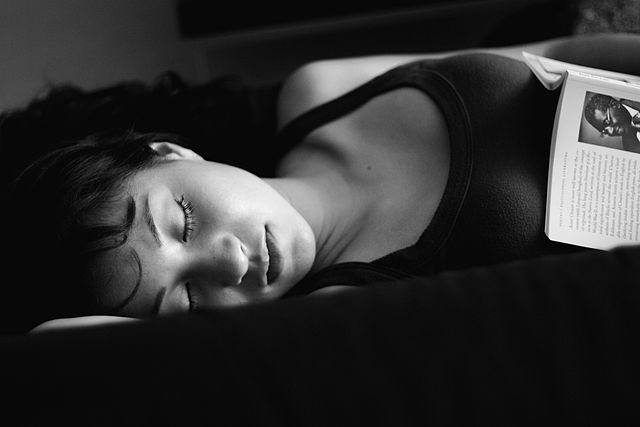Sound, restorative sleep is the foundation of a healthy life. A good night’s sleep is undoubtedly one of the healthiest and most rejuvenating pastimes. So why do so many of us complain about our sleep? Some sleep too little, some restlessly and some too much. Although one-third of our lives are spent asleep, most of us don’t know much about sleep. We don’t even know exactly why we sleep. Sleep problems profoundly disturb both sleeping and waking life, brought on my physical and mental problems, upheaval or interferences.
Rest is the basis of activity. If you sleep well at night, you function well in the daytime. If you don’t sleep well, you don’t function, reactions are slower, the mind feels heavy and dull, you tend to get upset more easily, you don’t work as efficiently, and, in general, it’s a lot harder to get through the day. Sleep is vital for healthy brain activity during the day, ensuring your moods, emotions, reflexes, and cognitive ability are at their best when you are awake.
How much sleep you need depends on the individual. Many people can get by on five or six hours a night. Others need nine or ten hours. Sleep needs generally decrease with age. A one-year-old baby requires about fourteen hours of sleep a day. By age five, children need about twelve hours. Adults, on average, need about seven to eight hours. Women tend to require more sleep than men. Many elderly people sleep less than their younger counterparts. They tend to sleep less at night but doze more during the day than younger adults.
The most common form of sleep disorder is insomnia-the inability to fall asleep and stay asleep throughout the night. Other common sleep complaints are: Snoring, Sleep Apnoea, Narcolepsy, Restless leg syndrome, Sleepwalking, Night Terrors, Nightmares, Bedwetting, etc.
Insomnia can be naturally relieved with herbal teas, infusions and baths. Examples of herbs that have proved useful in relaxing the nervous system include Hops, Valerian, Chamomile, Passionflower, Skullcap, Balm, Oats, St Johns Wort and Wild Lettuce.
Useful herbal teas include Lemon Balm tea, Valerian tea and Young Pine or Fir Needle tea.
Please ask your naturopathic doctor for further information on your individual situation before taking anything for your condition.
Top Ten Ways to Get a Good Night’s Sleep
Sleep – are you getting enough? For some people, enough is four to six hours. Other people just don’t feel right with less than eight hours. People need more or less sleep at different phases in their life. Women may need more or less sleep at different phases of the month.
The simplest way to tell if you’re getting enough is by noticing every morning – do you feel rested? Do you wake up without an alarm clock and feel ready to get right out of bed and start your day?
Not getting enough sleep is one of the most direct ways that we self-sabotage our success and well-being. When we are better rested we not only feel better, but are calmer, smarter, more rational, nicer to be around and we look better. Why wouldn’t we choose to have that every day??
1. Set the Stage – turn off the computer and television at least one hour before you’d like to fall asleep, and turn on some music that you find relaxing. Test what your stereo system will do when the recording is finished – does it SNAP! or does it “wrrrr” – this will make a difference as you’re drifting off. My CD player makes a very soft “wrrrr” noise (though I honestly can’t remember the last time I was still awake when the CD was over).
2. Music without words – words can provoke and direct your thoughts more than instrumental music or pure vocal sounds.
3. Music with natural “breaths” – music where the soloist takes natural pauses to breathe can help you to slow down your own breath – try flute, other wind instruments or voice (either with no words or words in a language you don’t understand).
4. A good book – For bedtime reading, try to stay away from material that gets you thinking about things you deal with during the day.5. Imagery – If you find that your mind is racing when you are trying to sleep, picture a viewpoint where you’re travelling down a road. See your thoughts as signposts that you’re passing. Concentrate on letting them pass right by.
6. Progressive muscle relaxation – Imagine that a ball of light is travelling along your body, beginning at the top of your head, going down to the tips of your toes, and then coming up again. As it passes your muscles, they fill with light and relax.
7. Take a nap – If your sleep has been interrupted or there’ve been unavoidable late nights, an afternoon nap can help you catch up. Experts advise that naps should be taken earlier in the afternoon, rather than later, and that we should keep them to 30 minutes or less. This will avoid disrupting your sleep at night.
8. Lavender Bath – Take a hot bath and add a couple of drops of lavender oil. Lavender has naturally occurring relaxing properties.
9. Chamomile Tea – Calms the nervous system and helps to promote restful sleep.
10. Take 500 mg Calcium with 250 mg Magnesium at bedtime – The calcium has a calming effect, and the magnesium works along with it.
The advice and information in this article is not meant to replace medical advice. If you suspect you have a serious sleeping problem such as sleep apnoea, or if you experience insomnia or extreme fatigue, please consult a healthcare professional.
This post is based on the article “Top Ten Ways to Get a Good Night’s Sleep” by Linda Dessau.








